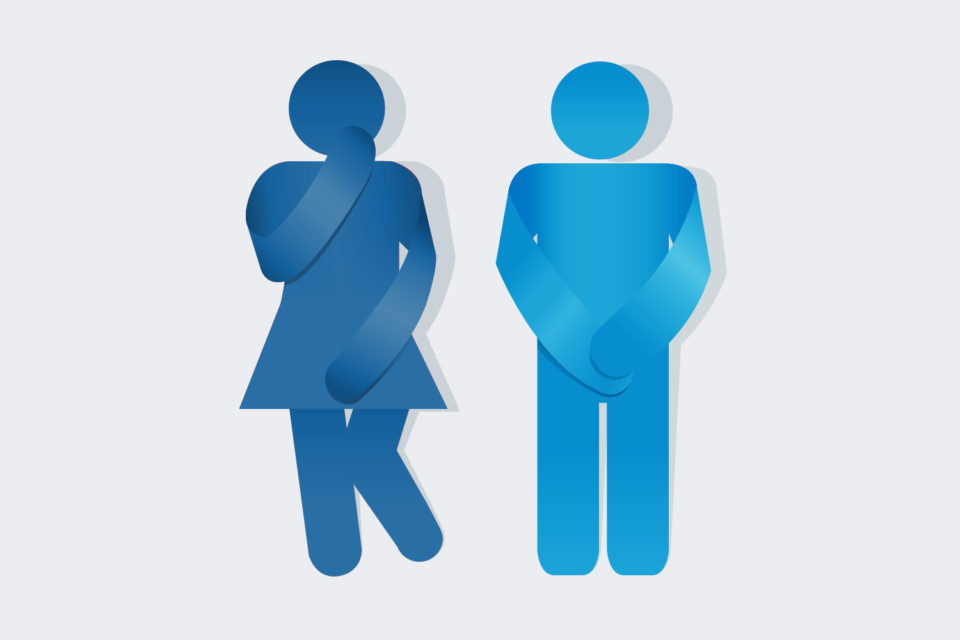Five Tips for Managing Your Overactive Bladder (OAB)
By: MJ Fegan, PT, DPT, GCS —
Millions of individuals suffer from an Overactive Bladder (OAB) and experience urgency to urinate, frequency of urination and urinary leakage. These symptoms are unpleasant and can interfere with your activities of daily living and your ability to sleep.
If you are experiencing OAB symptoms, following these tips may help manage your symptoms:
- Avoid dietary bladder irritants: spicy foods, carbonated beverages, acidic foods including citrus and tomatoes, caffeine (coffees and tea), sugar and artificial sweeteners, and chocolate to reduce symptoms.
- Participate in a regular exercise program that includes: strength training, aerobic exercise, flexibility and balance exercises. A pelvic floor physical therapist can instruct you in an individualized exercise program that will include specific pelvic floor exercises.
- Maintain a healthy weight. If you are overweight this can be placing added pressure on your bladder.
- Make sure to drink 6-8 (8oz) glasses of water throughout the day. Limiting your water intake can exacerbate your OAB symptoms. Not drinking enough water dehydrates you causing more concentrated urine and constipation which will irritate your bladder. Thus, increasing OAB symptoms and your risk of infection.
- Avoid constipation. Being constipated will put added pressure on your bladder. Try adding more fiber in your diet. Foods such as green veggies, beans, whole grains, and fruit are high in fiber.
OAB is Treatable.
You don’t have to be inconvenienced or embarrassed by OAB symptoms of urgency, frequency, or leakage.
If these tips don’t resolve your symptoms, see a pelvic floor physical therapist for bladder retraining and specific pelvic floor exercises. Rehab Concepts Physical Therapy offers pelvic floor therapy and can help. Give us a call for evaluation and treatment if you are bothered by overactive bladder symptoms.

